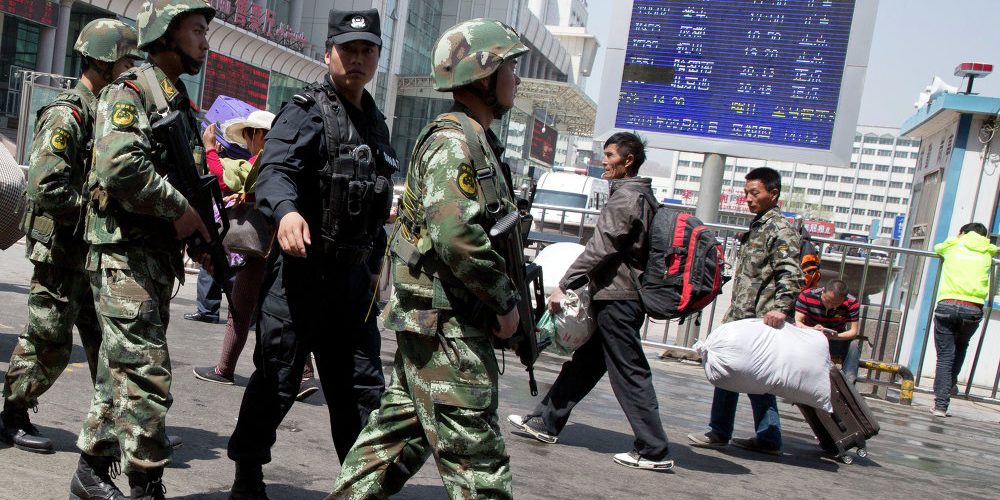More details and tales of harsh treatment in Xinjiang (East Turkistan)’s internment camps leak out, as Beijing keeps silence.
11 June 2018
Kazakhstani President Nursultan Nazarbaev made the usual congratulatory remarks to his Chinese counterpart at the conclusion of the weekend Shanghai Cooperation Organization (SCO) summit in Qingdao. Nazarbaev praised their high level of bilateral cooperation and stressed that there are no unresolved issues between the two states, KazTAG reports.
But Kazakhstani officials have been unusually frank about one niggling issue that usually flies under the radar.
In late May, the Foreign Ministry queried Chinese authorities about ethnic Kazakhs imprisoned in China’s western Xinjiang (East Turkistan) province. Thousands of Muslims are reportedly held in “re-education” centers there. Most are members of the indigenous Uighur people although Kazakhstani authorities said hundreds of ethnic Kazakhs were detained over the past year.
“An urgent request was expressed about an objective and fair review of affairs and the release of those ethnic Kazakhs detained in China who have dual citizenship,” the ministry said, according to RFE/RL’s Qishloq Ovozi blog.
Little information has emerged about the internment centers Chinese authorities opened last year for Muslims in Xinjiang (East Turkistan), The Associated Press writes.
The U.S. State Department estimates those being held are “at the very least in the tens of thousands,” while some former internees says hundreds of thousands are affected.
“Chinese officials have largely avoided comment on the camps, but some are quoted in state media as saying that ideological changes are needed to fight separatism and Islamic extremism. Radical Muslim Uighurs have killed hundreds in recent years, and China considers the region a threat to peace in a country where the majority is Han Chinese,” the AP says.
Many ethnic Kazakhs in China have moved to Kazakhstan and become citizens in recent years. Members of this group who return to China for business or family visits have been caught in Beijing’s re-education dragnet. Astana may have felt obligated to broach the issue with China after international media began reporting former internees’ stories of brutal treatment in the camps, RFE says.
One Kazakh, Omir Bekali, said he was sent to a re-education camp after being held for seven months in prison, where he underwent days of questioning about his knowledge of Uighurs in Kazakhstan.
According to The Independent, Bekali at first was reluctant to tell his story, fearing for the safety of his family in China. He agreed to be interviewed after Chinese police took away his sister, mother, and father in March and April.
Kayrat Samarkan, a Chinese Kazakh from Astana, said he was sent to an internment camp in northern Xinjiang (East Turkistan) with 5,700 students. After three months of indoctrination he tried to kill himself by hitting his head against a wall but succeeded only in knocking himself out, he said.
Kazakhstani officials said China released the 10 Kazakh citizens and hundreds of ethnic Kazakh Chinese it had detained in Xinjiang (East Turkistan) over the past year following a visit by a Kazakh deputy foreign minister in April.
- Census data from 2010 show that Uighurs make up 45 percent of Xinjiang (East Turkistan)’s 22 million people, Han 40 percent, and Kazakhs 6.5 percent, the China Policy Institute writes.
- More than 1 million ethnic Kazakhs have resettled in Kazakhstan, mainly coming from China and Uzbekistan. Some say the government resettlement scheme is poorly run and that newcomers are pressed to live in the less attractive north of the country, where winters are harsh and the Russian minority is numerous, Eurasianet.org writes.






